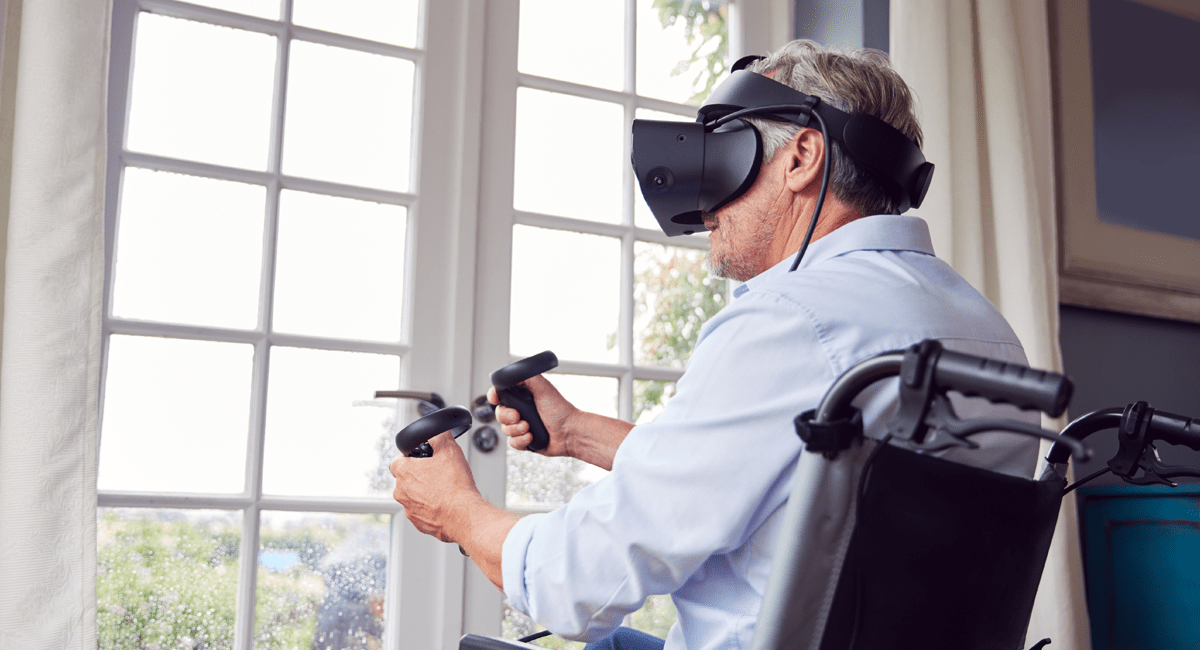VHA’s “Virtual Calm” pilot receives green-light funding from the Canadian Centre for Aging and Brain Health Innovation

VHA Home HealthCare has received a $25,000 grant from the Canadian Centre for Aging and Brain Health Innovation (CC-ABHI) to fund Virtual Calm, an innovative project that will explore the use of virtual reality technology to ease distress in people with Alzheimer’s or dementia. The funding was announced by CC-ABHI at a collaborative event with Baycrest Health Sciences.
Preliminary work on virtual reality videos with patients who have dementia or Alzheimer’s has been promising in clinical settings. Our Virtual Calm project will take this technology into the community to help clients with Alzheimer’s or dementia experience the calming effects of a peaceful “virtual journey” when they feel distress or agitation in the home.
“The Alzheimer’s Association reports nearly 60 percent of Alzheimer’s and dementia caregivers experience emotional stress related to caregiving, and about 40 percent suffer from depression. Burnout is also a very real issue. Through our Virtual Calm project, we have the potential to ease challenging and responsive behaviours in clients with dementia or Alzheimer’s, which will give caregivers an important and effective tool to reduce their own stress levels,” says Sandra McKay, VHA’s Manager of Research and Evaluation.
VHA’s Virtual Calm project is one of 31 projects receiving funding as part of CC-ABHI’s 2017 SPARK program. In all, $1.4 million in funding will be granted across North America to enable organizations to further develop grassroots ideas into proofs-of-concept or prototypes that have the potential to improve brain health or quality of life for older adults.
“Across VHA, we are embracing the potential of technology to have a positive impact on the lives of clients and caregivers,” says Carol Annett, VHA’s President and CEO. “This project is particularly exciting because a junior staff suggested it through our VHA Spark! ideation social software, and it was “voted up” internally by office and point-of-care staff. It’s wonderful to launch a project with support and enthusiasm already expressed at all levels of the organization.”
CC-ABHI’s SPARK program is made possible through generous funding provided by the Government of Ontario through the Ministry of Research, Innovation and Science, and by the Government of Canada through the Public Health Agency of Canada, and by the Baycrest Foundation.
For more information on the Spark Program visit www.ccabhi.com, or join the social media conversation by using the hashtag #ccabhispark.
